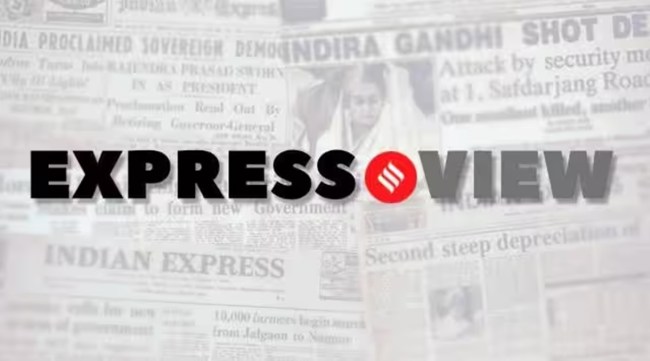Opinion Express View: After SC electoral bond verdict, time to clean up
Experts point to four key aspects that future regulation must tackle. These are: Regulation of donations, expenditure limits, public financing, and disclosure requirements
 In its judgment, the apex court devoted a complete section to a discussion of the close association between money and politics. “It is believed that money does not vote but people do.
In its judgment, the apex court devoted a complete section to a discussion of the close association between money and politics. “It is believed that money does not vote but people do. With the Supreme Court striking down electoral bonds, India is back to square one on the issue of electoral finance. While many had argued that electoral bonds were a step in the wrong direction, many others, including the former finance minister, Arun Jaitley, saw it as a first step towards cleaning up campaign finance. It is critical for the continued health of India’s democracy that the rejection of the electoral bonds scheme does not mean an end to the idea of reforming electoral finance.
In its judgment, the apex court devoted a complete section to a discussion of the close association between money and politics. “It is believed that money does not vote but people do. However, studies have revealed the direct and indirect influence of money on electoral politics,” it says. In particular, the court noted that money “creates entry-barriers to politics by limiting the kind of candidates and political parties which enter the electoral fray”.
In other words, absent regulation, money can not only exclude candidates who belong to socio-economically weaker sections but also make it tougher for political parties that are new to the electoral fray, and in particular, parties representing the cause of marginalised communities. The court also noted that there is “an underlying dichotomy in the legal regime” when it comes to this issue in India. That’s because the law only regulates contributions to political parties, not to individual candidates. However, when it comes to expenditure, the law regulates the expenditure by candidates and not by political parties.
Experts point to four key aspects that future regulation must tackle. These are: Regulation of donations, expenditure limits, public financing, and disclosure requirements. Around the world, one can spot various norms and experiments. For instance, the US imposes restrictions on contributions based on the kind of donor whereas there is no such regulation in the UK. But the UK regulates expenditure — political parties are not allowed to spend more than £30,000 — while the US imposes no such constraints.
On the old question of public financing, Germany is an oft-quoted example where parties receive public funds on the basis of their importance (based on criteria such as the number of votes received in the last elections) in the political system. A noteworthy experiment in this regard was the use of “democracy vouchers” in local elections in Seattle, US. In this, publicly funded vouchers were distributed among eligible voters, who, in turn, donated them to the candidate of their choice.
Lastly, the issue of disclosure, the balance between transparency and anonymity — the specific count on which electoral bonds were binned. To be sure, there is no single ready-made solution to this issue, especially since politics differs dramatically between countries as well as within the same country over time.
A glaring lapse in the electoral bonds case was the government’s decision not to have any consultations either with other political parties or with the general public. For finding a robust solution it will be necessary to avoid that mistake.





